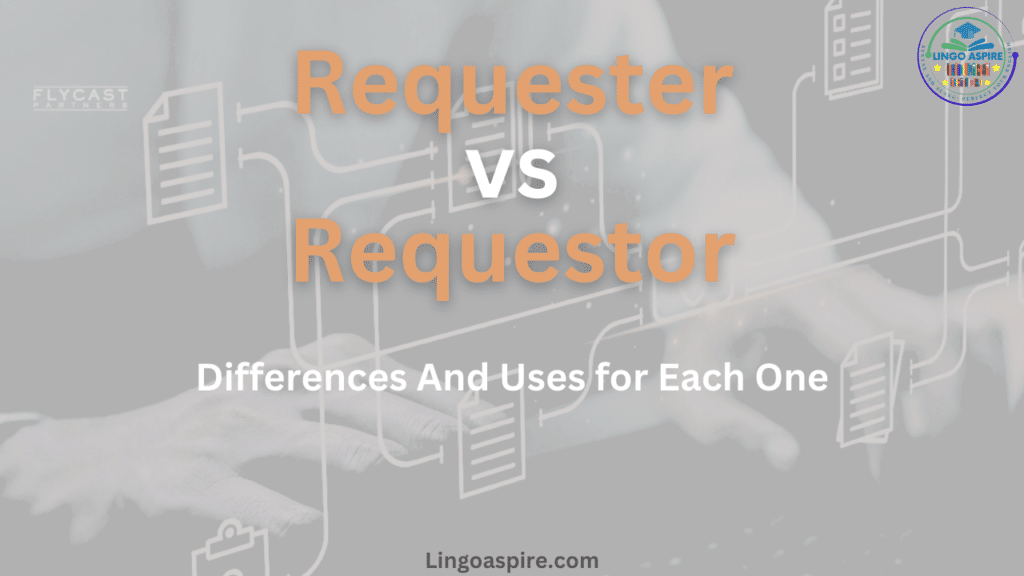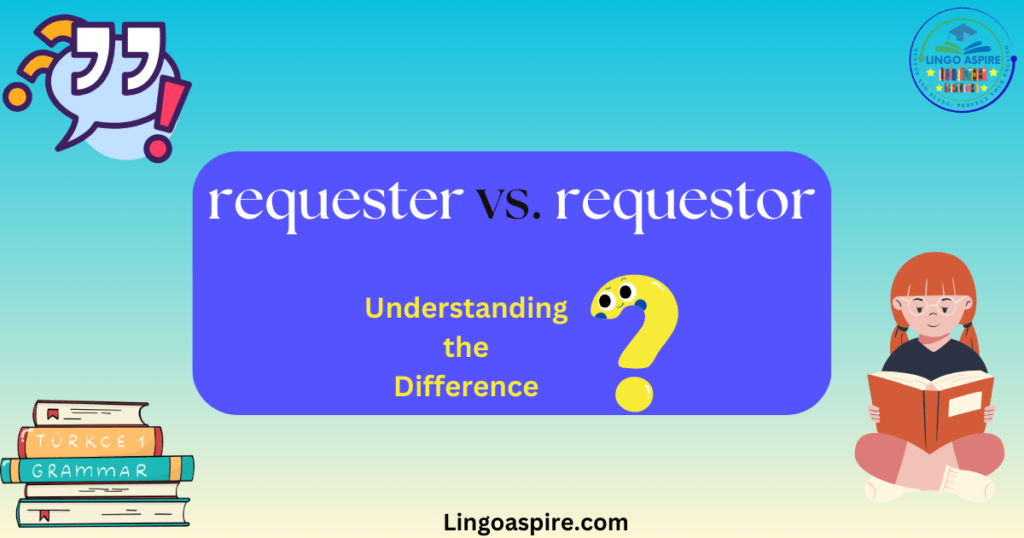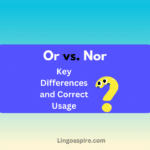You may have noticed the terms requester and requestor when you’re writing or speaking. While they seem similar, there’s often confusion about when to use one over the other. Understanding the correct usage of Requester vs. Requestor can make your writing clearer and more professional. This article will help you distinguish between requester and requestor, explain their meanings, and guide you on using them in various contexts.
What Does “Requester” Mean?
The word requester refers to someone who makes a request. A requester is typically someone seeking something, such as information, permission, or an item. In everyday language, a requester is common in casual conversations or informal writing. For example, when you ask for a book at the library, you are the requester.
You will find that the term requester is widely used in various forms of communication, especially in informal contexts. Whether you’re writing an email, submitting a form, or simply making a verbal request, the word requester fits well in these situations. It’s a specific term that captures asking for something in both business and personal settings.
What Does “Requestor” Mean?
Requestor is another word that also refers to someone who makes a request, but it is often used in more formal settings. The term is more likely to appear in legal documents, contracts, or official communication. For example, in a formal application for funding or in a legal petition, the person submitting the request may be referred to as the requestor.
In contrast to the requester, the requestor doesn’t appear as frequently in everyday conversations. While both terms share the same basic meaning, the requestor carries a slightly more formal tone. It’s important to consider the audience and the context when deciding which term to use.
The Debate: Requester vs. Requestor

The main debate between requester and requestor is their usage in different contexts. Both terms refer to someone who asks for something, but the choice between them often depends on the setting. The requester is more common in casual contexts, while the requestor is generally used in more formal writing or legal documents.
In many cases, the difference is subtle, and people often use both terms interchangeably. However, it’s important to recognize that some style guides and professionals prefer requestors for formal contexts and requesters for more casual ones. Understanding the specific needs of your audience can guide you toward the right choice.
Which Term Should You Use?
The choice between requester and requestor largely depends on the formality of your writing. If you are drafting a legal document, an official report, or any formal communication, a requestor is likely the better choice. This word adds a level of professionalism that fits well with the tone of legal and administrative texts.
On the other hand, if you are writing an email, making a general inquiry, or discussing an everyday situation, a requester is usually more appropriate. Its more common usage makes it ideal for casual or conversational settings. Ultimately, the context and the audience are the most important factors to consider when choosing which term to use.
The Origins of Requester vs. Requestor
Both requester and requestor trace their origins back to the verb request, which comes from Latin. The term request evolved through Old French and eventually made its way into English. The words requester vs. requestor both emerged from this base, with requester being the more widely adopted spelling over time.
The key difference between these two terms lies in their endings. The suffix -er is often used to describe someone who acts (like a worker or baker), while -or tends to appear in more formal or technical terms (such as employer or senator). This may explain why the requester feels more informal and the requestor is reserved for more official uses.
General Advice for Both Terms
- “Requester” is the safer choice for common, informal writing like emails, blogs, or customer service communication.
- “Requestor” shines in more formal, legal, or technical contexts, especially when dealing with professional documents, petitions, or contracts.
By understanding the usage of these two terms, you can decide which one fits your writings tone and your audience’s expectations.
Uses of Requester vs. Requestor

| Context | Requester | Requestor |
|---|---|---|
| Casual Writing | Commonly used in informal emails, blog posts, or casual documents. Example: “The requester filled out the form.” | Less commonly used. May appear in legal or formal contexts but not in everyday writing. |
| Business Communication | Preferred in business emails or communication regarding a request for a product, service, or support. Example: “As the requester, I need help with my order.” | Rarely used in business communication unless in a legal or contractual document. |
| Customer Service | Frequently used to describe a person asking for help or support. Example: “The requester asked for a refund on the product.” | Not commonly used in customer service interactions unless in specific formal requests. |
| Legal Writing | Rarely used in legal contexts; typically, the requester is replaced by the requestor in such cases. Example: “The requester filed a claim for damages.” | Commonly used in legal documents, petitions, or contracts where formality is required. Example: “The requestor submitted a formal request for the document.” |
| Technical Documents | Less formal and rarely used in highly technical documents. Example: “The requester requires access to the system.” | More common in technical or official documentation, especially for government or institutional requests. Example: “The requestor must provide documentation to access the data.” |
| Government Use | Not as common in government forms; might be used in informal requests. | Preferred in government-related documents, such as public records requests or petitions. Example: “The requestor is seeking access to public records.” |
Explanation of Use Cases:
- Casual Writing:
In everyday writing, “requester” is the better choice. It feels more conversational and fits well in non-technical settings like emails, blog posts, and informal communication. “Requester” is easy to understand and doesn’t carry the formal tone that might make your writing feel stiff or distant. For instance, if you’re writing a simple email requesting a meeting, you would say, “The requester asked for a meeting time.” - Business Communication:
Requester is the term you would use when dealing with business-related requests, whether it’s for a product, service, or customer support. It keeps things professional but still approachable. A requestor might appear in contracts or highly formal documents in business settings, but most business communication will stick with “requester.” - Legal Writing:
In legal writing, precision and formality are key, which is why “requestor” is preferred. Whether it’s a petition, legal filing, or an official request in a courtroom, the “requestor” ensures that the document sounds professional and follows the correct legal terminology. “Requester” would sound too informal and may not align with the expected tone of a legal document. - Technical Documents:
“Requestor” is more likely to be found in technical documents or forms, especially in environments where formal language is needed. For instance, a requestor might need to submit a formal application for access to restricted data or technical systems. Using “requester” in these settings may undermine the professional nature of the document. - Government Use:
In government forms or when filing a petition, “requestor” is often the correct term. Government institutions typically require formal language, and “requestor” fits this style perfectly.
Common Mistakes and How to Avoid Them
A frequent mistake people make is using a requestor in casual writing, where the requester is more fitting. Since both words mean the same thing, the distinction often comes down to the tone and formality of the text. Another mistake is using a requester in very formal legal or business contexts where a requestor would be more appropriate.
To avoid confusion, always consider the context and the audience. If you’re writing a letter to a friend or colleague, a requester is likely the better choice. But if you’re drafting a legal petition or official document, the requestor will likely match the tone of your writing more appropriately.
Examples in Context
Both requester and requestor appear in different types of writing, and here are some examples of how to use them in context.
In a business email:
“I am the requester for the information regarding the new project proposal.”
In a legal document:
“The requestor hereby requests that the court review the evidence provided.”
In a casual conversation:
“The requester needs to fill out the form before submitting it.”
In a formal petition:
“As the requestor, I seek permission to access the required documents.”
By understanding these examples, it’s easier to see how the terms align with different settings. Requester fits in day-to-day communication, while the requestor serves formal and legal contexts better.
Synonyms for Requester and Requestor
Both requester and requestor have a range of synonyms that might work depending on the context. Some common alternatives include:
- Applicant – Often used in the context of job applications or formal requests for something.
- Petitioner – Typically used in legal contexts when making a formal request to a court.
- Seeker – A general term for someone seeking information, help, or something else.
- Inquirer – A person asking a question or seeking information.
- Claimant – A term often used in legal settings for someone making a claim.
These synonyms can provide variety in your writing, but it’s crucial to pick the right one for the context.
Conclusion
In summary, both requester and requestor mean the same thing: someone who makes a request. The difference lies mainly in the formality of their usage. Requester is more common in casual settings, while requestor is typically reserved for formal and legal contexts.
By understanding the subtle differences between these two terms, you can make more informed choices when writing. Always consider your audience and the tone of your writing before deciding which word to use. By doing so, you’ll ensure your writing is clear, professional, and contextually appropriate.
Understanding the specific needs of your audience can greatly improve the clarity and professionalism of your writing. Whether you’re making an everyday request or submitting a formal petition, choosing the right term will ensure your message is received as intended.
Sources
Merriam-Webster Dictionary: Merriam-Webster offers definitions for both “requester” and “requestor” and clarifies that both terms are recognized, with “requester” being more commonly used in everyday language.
Oxford English Dictionary: The Oxford English Dictionary highlights the historical usage of both terms Requester vs. Requestor.







